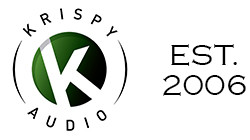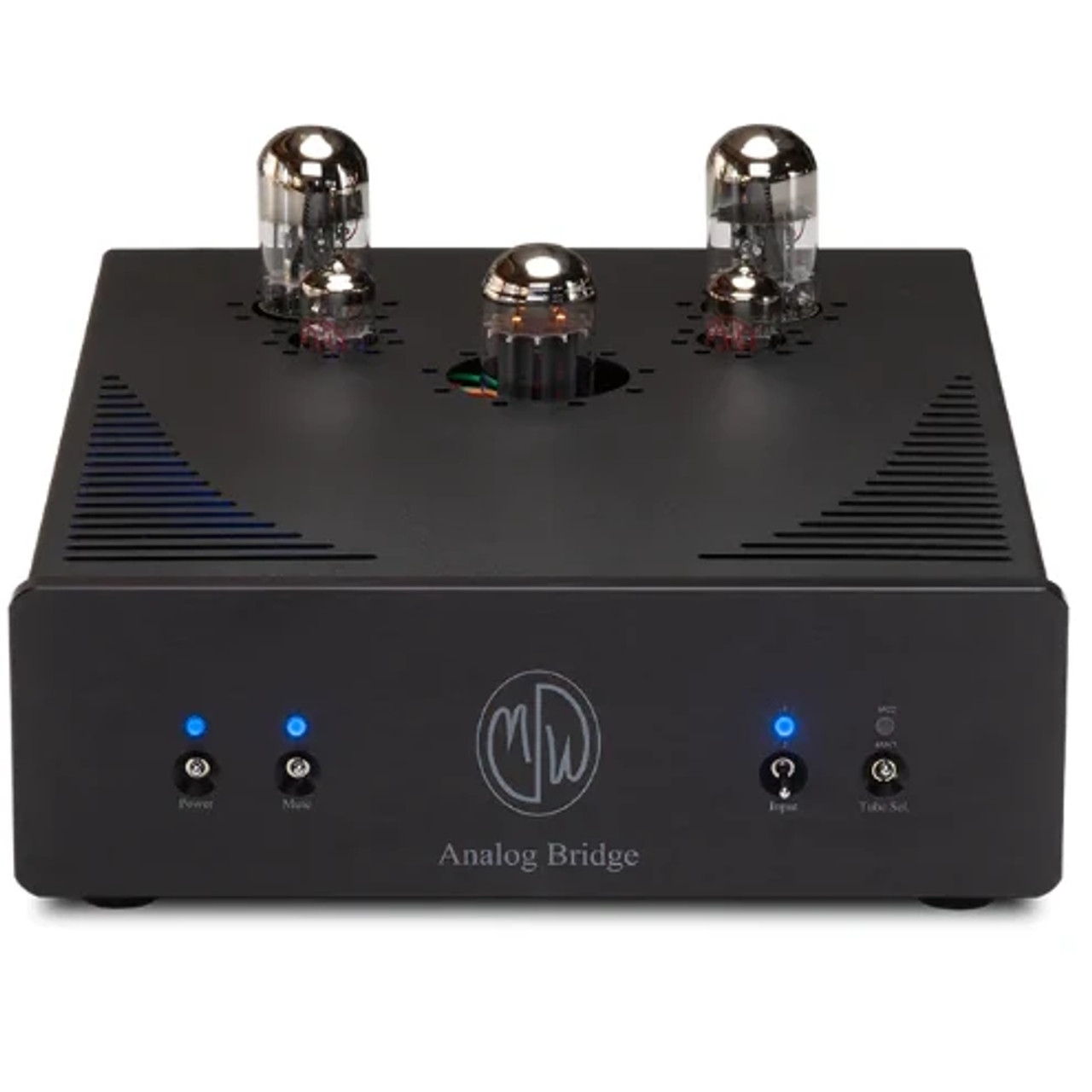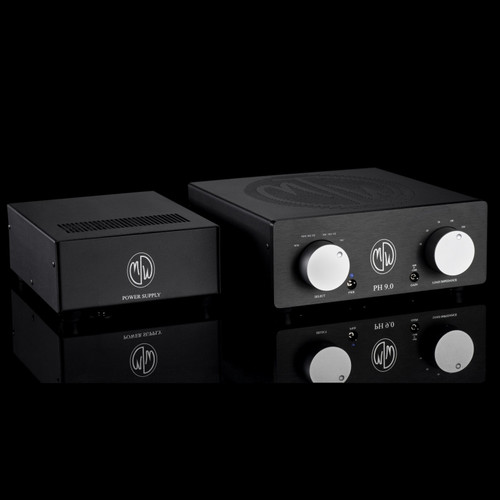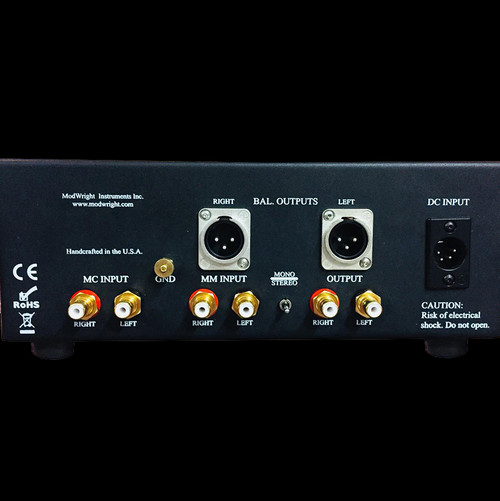Product Description
Modwright's Analog Bridge was designed to fill a niche left by our custom tube modifications for digital source equipment. Due to the rapidly changing world of modern digital, we wanted a product that could be used with a variety of digital and analog SS sources. The Analog Bridge will not be replaced as digital technology progresses and system components change. It is an accessory that will be a constant and improvement in your system.
The purpose of the Analog Bridge, is to add the strengths and positive attributes of tubes to any system, without the bandwidth limitation, noise and added distortion that many associate with tube electronics.
PRODUCT REVIEWS:
May 8, 2023 – David W. Robinson – Positive Feedback
Impressions: The ModWright Analog Bridge…a Rave!
February 23, 2023 – Michael Lavorgna’s Twittering Machines
ModWright Analog Bridge
ANALOG BRIDGE USES & SONIC BENEFITS:
1. Between digital or analog source(s) and preamp. – Any digital that is deemed thin, bright or lacking depth and body will definitely benefit. Even digital that is not bright, but lacks body, will benefit from tube body and weight.
2. Between preamp and amp. – An all SS system that customer feels is lacking in body, depth or warmth. Perhaps system is very resolving but uninvolving. The Analog Bridge will bring 3-dimensionality and broad soundstage to the system.
3. Between source and amp. – A simple system one or two sources (with integral volume control) and amp is ideal. It adds the sonic benefits of tubes while keeping the system simple. Very low output impedance means it will drive ANY amp.
4. Between passive attenuator and amp. – Same as above, source(s) – passive pre/attenuator – Analog Bridge – Amp. Analog bridge provides necessary buffering not provided by a passive.
PRODUCT ADVANTAGES:
1. SYSTEM USE – The Analog Bridge can be added to any system and allows customers numerous ways to improve and tailor their sound. Most importantly, it has very low noise, distortion, and wide bandwidth. It does not add undue coloration or take away anything from the signal path.
2. PURELY ANALOG – There are no integrated circuits, clocks, or other processors. This is a purely analog product. We chose toggle switches for this reason.
3. SOLID STATE & TUBE SYSTEMS – It is intended for use in an all-solid-state system that wants to add tubes. It ideally goes before the amp, because it offers exceptionally low output impedance which means it will interface with any amp very well! It can go in any system with tubes also. In this case, it would ideally follow a digital or analog source that is SS. The signal in a system starts with the source and even if there is a tube system that follows, the improved source signal will benefit the whole system.
4. ON-THE-FLY & 3 DIFFERENT TUBE TYPES – The Analog Bridge features two parallel output tube stages, that can be switched on-the-fly, via a toggle on the faceplate. One is 6922/6dj8/7308 and the other is 6SN7 based. Each tube type has its own tonal characteristics and rolling tubes by other manufacturers also allows for a change in sound. This circuit uses three different tube types: GZ34 rectifier and 6922 or 6SN7 driver tubes. The Analog Bridge is tube rectified and SS regulated, to allow rectifier tube rolling as a way of changing tonal characteristics of the Analog Bridge. SS voltage regulation is chosen for the best regulation and lowest noise and distortion possible. Tubes are exposed for easy access and tube rolling. Brief mute circuit is designed into the switching between tubes to prevent any DC issues.
5. COLOUR SELECTION – The Analog Bridge comes in two colour options. The chassis will always be black, but the faceplate can be changed to black or silver for system matching.
TUBE BENEFITS:
JJ GZ34 RECTIFIER TUBES:
- The rectifier tube can be changed to 5AR4, GZ34, 5R4GY, 274B, 5U4, 5U4G, 5U4GB, 5V4, 5V4G, 5V4GB. Virtually any rectifier tube can be used, provided it is pin compatible with those listed.
- The filament winding is rated for 3A. The supply circuit is designed to meet the requirements of any rectifiers’ tube data.
- There is enough headroom in the voltage regulator to allow for rectifier tubes with different levels of forward voltage drop.
- All rectifier tubes sound different. Some have tighter bass, others more bloom, some are warmer while others are faster.
JJ 6922 OUTPUT TUBES:
- The 6922 output tubes can be changed to 6DJ8, 7DJ8, 7308, ECC88. Many NOS options available.
- 6922 and compatible tubes are more neutral and detailed, which will suit some tastes and music better than the 6SN7.
JJ 6SN7 OUTPUT TUBES:
- The 6SN7 output tubes can be changed to CV181. Many NOS options are available for the 6SN7.
- The 6SN7 has a ‘fat tone’ and warmth, compared to the 6922 and as such, will suit some tastes and music better than the 6922.
THREE TUBES THAT CAN BE CHANGED:
- This allows for a myriad of different sonic combinations to suit any customers sonic preferences for all music.
TECHNICAL SPECIFICATION BENEFITS:
1. INPUTS: (2) pair RCA – Optional (1) pair XLR with add cost balanced option. – Both RCA and XLR operation will sound the same. XLR option includes transformer coupling in and out (four Lundahl transformers) to insure fully balanced operation in and out.
2. OUTPUTS: (2) pair RCA – Optional (1) pair XLR with add cost balanced option. – While the sound of the Analog Bridge will be same via RCA or XLR inputs, a fully balanced system will sound best if fed balanced into the Analog Bridge. Also, if long cable runs are used, balanced cables WILL reduce overall noise and improve performance.
3. SWITCHES: Left to right – Power – Mute — Input (1 or 2) – Tube Select (6922 or 6SN7). Rear toggle selects balanced or RCA operation if balanced option installed. – Toggle on rear to select between RCA or XLR in to out. Only RCA in-out or XLR in-out operation, not RCA in and XLR out, etc.
4. GAIN: Unity. – It gives a significantly cleaner and undistorted signal.
5. NOISE: -105dB (unweighted) – Very quiet and will not introduce noise into the system.
6. FREQUENCY RESPONSE: (20Hz – 150Khz(-1dB)) – Considering that most digital gear is filtered at 60Khz – 100Khz, the Analog Bridge will NOT limit bandwidth.
7. THD: < .005% – Lower distortion is always the goal. Tubes will always produce their characteristic strengths of tone, depth, and body.
8. OUTPUT IMPEDENCE: < 20 ohm. – This allows the Analog Bridge to drive any preamp or amp with input impedance as low as 2K – 5K! Characteristic input impedance for most amps and preamps is 10K – 100K. Some SS gear has low input impedance, but the Analog Bridge will have no problem.
9. DIMENSIONS: 267W x 89H x 368D mm.
- The Analog Bridge is a compact, single chassis product.
- The Analog Bridge is sized to be more compact and ‘future friendly’ in a day when people are downsizing and looking to conserve space.















